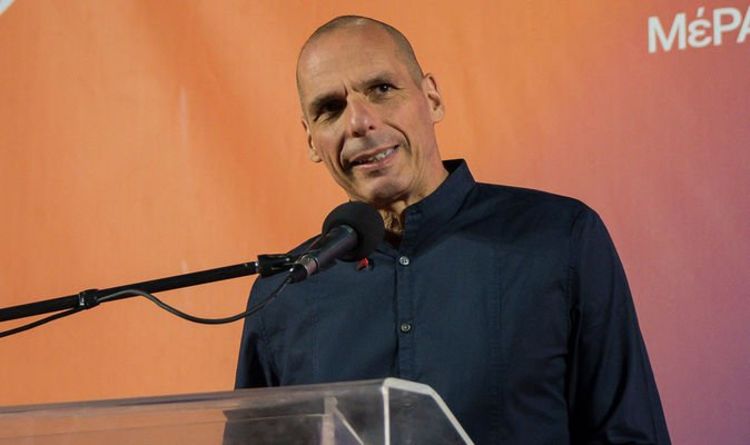Varoufakis issues warning on ‘puny’ EU recovery fund
When you subscribe we will use the information you provide to send you these newsletters.Sometimes they’ll include recommendations for other related newsletters or services we offer.Our Privacy Notice explains more about how we use your data, and your rights.You can unsubscribe at any time.
The EU’s recovery plan, in what should be the beginning of the end of the coronavirus pandemic, took yet another blow this week. It came as Austria’s Chancellor Sebastian Kurz accused the bloc of unfairly distributing COVID-19 vaccines among member states. His allegation exposed the fact that certain EU nations have several times more vaccines than others.
The charge could prove yet another hindrance to the EU’s recovery effort, following weeks of controversy surrounding a stalled vaccination programme and recovery fund.
Attention has previously been brought to the mountains of debt currently blanketing the bloc and how individual countries might struggle to overcome this.
Yanis Varoufakis, Greece’s former finance minister, a prominent critic of the EU, has previously drawn attention to the EU’s debt problem.
His arguments suggest that the bloc could face further obstacles in overcoming the health crisis.
In 2015, shortly after leaving his role in the Hellenic Parliament, he told a Ted Talk how the EU’s economic situation was harming its democratic process, setting out “an economic case for an authentic democracy”.
He said: “I want to ask you to join me in believing again that Lee Kuan Yew, the Chinese Communist Party and indeed the Eurogroup are wrong in believing that we can dispense with democracy – that we need an authentic, boisterous, democracy.
“Without democracy, our societies will be nastier, our future bleak, and our great new technologies wasted.
“Speaking of waste, allow me to point out an interesting paradox that is threatening our economies as we speak.
JUST IN: New pandemic is coming and set to be MORE deadly
“I call it the twin peaks paradox.
“One peak is the mountain of debt that has been casting a long shadow over the US, Europe, the whole world.
“Few people discern its twin: a mountain of idle cash belonging to rich savers and corporations too terrified to invest it into the productive activities that can generate the incomes from which you can extinguish the mountain of debts, and which can produce all those things that humanity desperately needs, like green energy.”
The EU has since embarked on its so-called “green recovery” plan to help economic and social damage caused by the pandemic.
DON’T MISS
Donald Trump savaged over private jet downgrade – ‘Mighty have fallen’ [REPORT]
Democrats accused of promoting ‘unfit’ candidate Joe Biden [INSIGHT]
Archaeology: Divers stunned by biggest ever Roman shipwreck [ANALYSIS]
Things did not at first go to plan, however, with many member states unwilling to agree to shared debt.
The deal was eventually passed through the EU Parliament but only after much deliberation.
While many have hailed it as the next chapter for a further integrated Europe, others are more wary.
The EU’s predecessor, the European Economic Community (EEC), was founded on the promise of financial restraint, with shared debt against the rules.
Collective debt will now cover each 27-member state, involving €750billion (£677billion) in grants and loans, with a further €360billion (£322billion) in low-interest loans.
A handful of countries fear that the EU’s entrenched financial crisis – government debt is up to 95.1 percent of GDP in the euro area – could further harm already economically weak countries in the bloc.
Greece’s loan repayments to the European Central Bank (ECB) and International Monetary Fund (IMF) following the 2008 financial crash are scheduled to 2040.
Money added to this as part of an ongoing recovery could be crippling.
Many of Europe’s southern nations have been hardest hit by the health crisis, including Spain and Italy.
The latter’s Italexit party spokesman, Sergio Montanaro, told Express.co.uk that the EU funds “bind countries to the EU”.
He said this will make it harder for countries to distance themselves from the bloc and recover independently.
Italy looks set to receive the bloc’s largest loan and grant – a €222billion (£194bn) package, of which €85bn (£74bn) is in grants, while €124bn (£108bn) will be given in loans.
Source: Read Full Article







